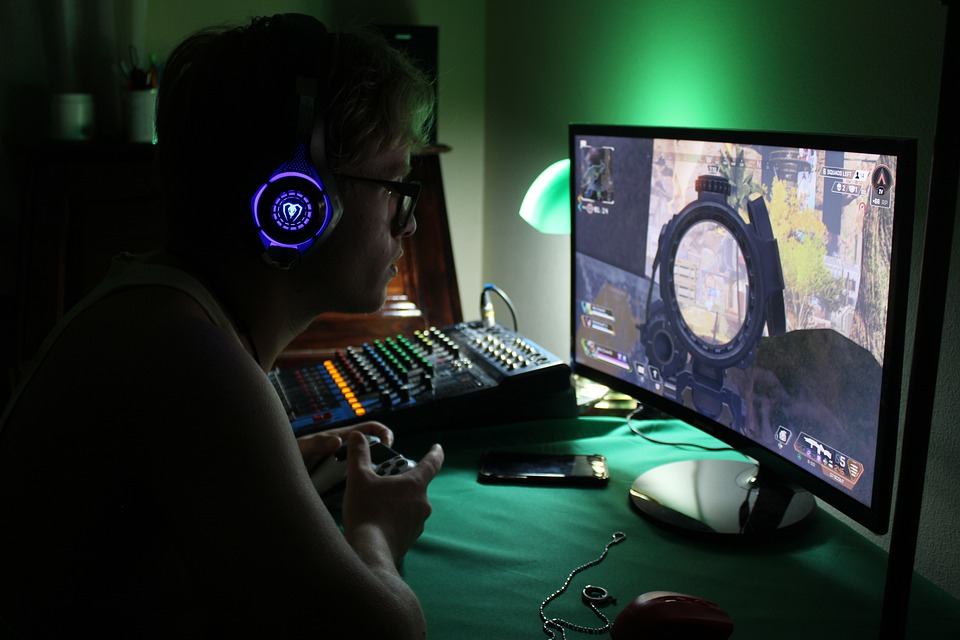In online multi-player games there needs to be some way to keep track of a players actions and the effects those actions have in the gaming world. For example, when a player shoots and hits another player this must be reflected in all the players’ game environments so that the game integrity is maintained.
The way that this is often implemented is to have a dedicated server that keeps track of all player positions and statuses (as well as the world game state) and communicates this to each player’s version of the game. This is referred to as a ‘star topology’ because the server is in the center (of a star shape) and all players link to that server (the rays of the star, as it were).
In peer to peer games, however, each player connects directly with other players . A given player will send information packets (that reflect game actions) to each of the other players’ computer. In some implementations, while users all connect with each other as peers, there is one computer that is designated as the host that keeps track of the overall game state. A second form of peer to peer does away with the dedicated server so that players connect in what is referred to as a ‘mesh’. This means that everyone runs the game logic and changes from other players are communicated to all players and updated on each machine.
There are several problems with peer to peer games that result from the way they are implemented. Delays are a particularly problematic for games. If there is a delay that is longer than a human being can perceive (anything above 200ms) players are likely to regard it as a fault in the game because it will result in poor gameplay since actions a player takes will not be immediately reflected in the game. Related to this, peer implementations are also subject to problems with scalability. When the number of players increases beyond a given threshold bandwidth issues will slow game play once more. Cheating is also an issue in these types of implementations since all a bad actor need do is interrogate the packets being sent between the peers and change them to provide themselves with an advantage – this can include changing the overall game state or the state of individual players.
Peer to peer implementations are seen as less attractive in today’s gaming markets where large multi-player games are usually hosted in the cloud in a dedicated server model where enough computing power is provided to maintain the game state for a large number of users and the possibility of cheating and other undesirable actions are minimized.







